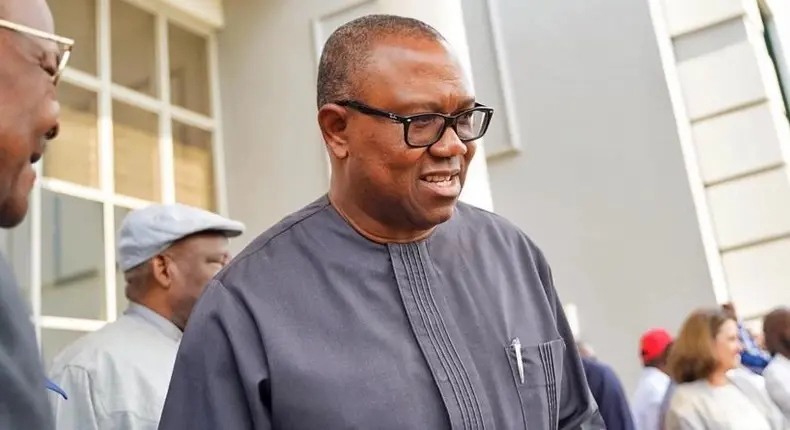Nigeria worse off than when IBB left office – Obi
Presidential candidate of the Labour Party (LP) in 2023 elections, Peter Obi, has said Nigeria has gone worse than when former military president Ibrahim Badamasi Babangida left office in 1992. Obi said this on his X handle while commenting on the launch of Babangida’s long-awaited autobiography, ‘A Journey in Service’. Daily Trust learnt that Obi […]

Peter Obi
Presidential candidate of the Labour Party (LP) in 2023 elections, Peter Obi, has said Nigeria has gone worse than when former military president Ibrahim Badamasi Babangida left office in 1992.
Obi said this on his X handle while commenting on the launch of Babangida’s long-awaited autobiography, ‘A Journey in Service’.
Daily Trust learnt that Obi was not granted access, alongside many others to the Congress Hall of Transcorp Hotel, where the event held, as the doors were locked after President Bola Tinubu arrived for the occasion.
Obi, on his X message, however, said that IBB’s contributions to Nigeria’s economy and his strong support for entrepreneurship and private sector growth remain immeasurable.
- IBB one of Nigeria’s most influential figures in history –Nourah Bamalli
- June 12: I take responsibility – IBB
Speaking on what he called two key takeaways from the keynote address and IBB comment on the 1993 election, he said Nigeria has not grow unlike her peers as at 1992 when IBB left government.
“The 1st is the keynote Speaker’s notable quotation in French, “Rien n’a changé” meaning “Nothing much has changed.” In the case of Nigeria, we are worse off than we were during IBB’s era. Using our contemporary peers as a benchmark, when IBB left office in 1992, countries like Bangladesh, India, Vietnam, and Ghana were all in the low Human Development Index (HDI) category—just like Nigeria.
“Today, however, these nations have advanced to medium and high HDI levels, while Nigeria remains in the low HDI category, having either stagnated or declined.
“The Keynote speaker’s comment that Ghana has remained a truly democratic country for the past 30 years, with leadership transitions that reflect the genuine votes of the people.
“Unlike Nigeria, where electoral outcomes often fail to reflect the people’s will, Ghana has witnessed instances where ruling party candidates conceded defeat, respecting democracy in its truest form,” Obi said.
He also said that under IBBs leadership, Nigeria witnessed substantial growth, particularly in the financial sector as he (IBB) played a key role in fostering a united and equitable Nigeria, and economic landscape, ensuring policies that strengthened national cohesion and economic development.
“Documenting such experiences is a welcome development, as it allows us to learn from those who have served and left a lasting impact on the nation. I look forward to reading this book, which undoubtedly holds valuable lessons. As someone committed to continuous learning, I will always align myself with knowledge drawn from documented experiences and historical records as well as contributing to the legacy library.
“Lastly of the most profound moments of the event was IBB’s admission that Chief MKO Abiola won the June 12 election. This acknowledgement is a step toward national healing, unity and progress of our nation.
“I hope that one day, other key players in Nigeria’s democracy will find the courage to recognize the true winners of past elections, allowing our nation to tell its story with honesty and reflection,” Obi said.
